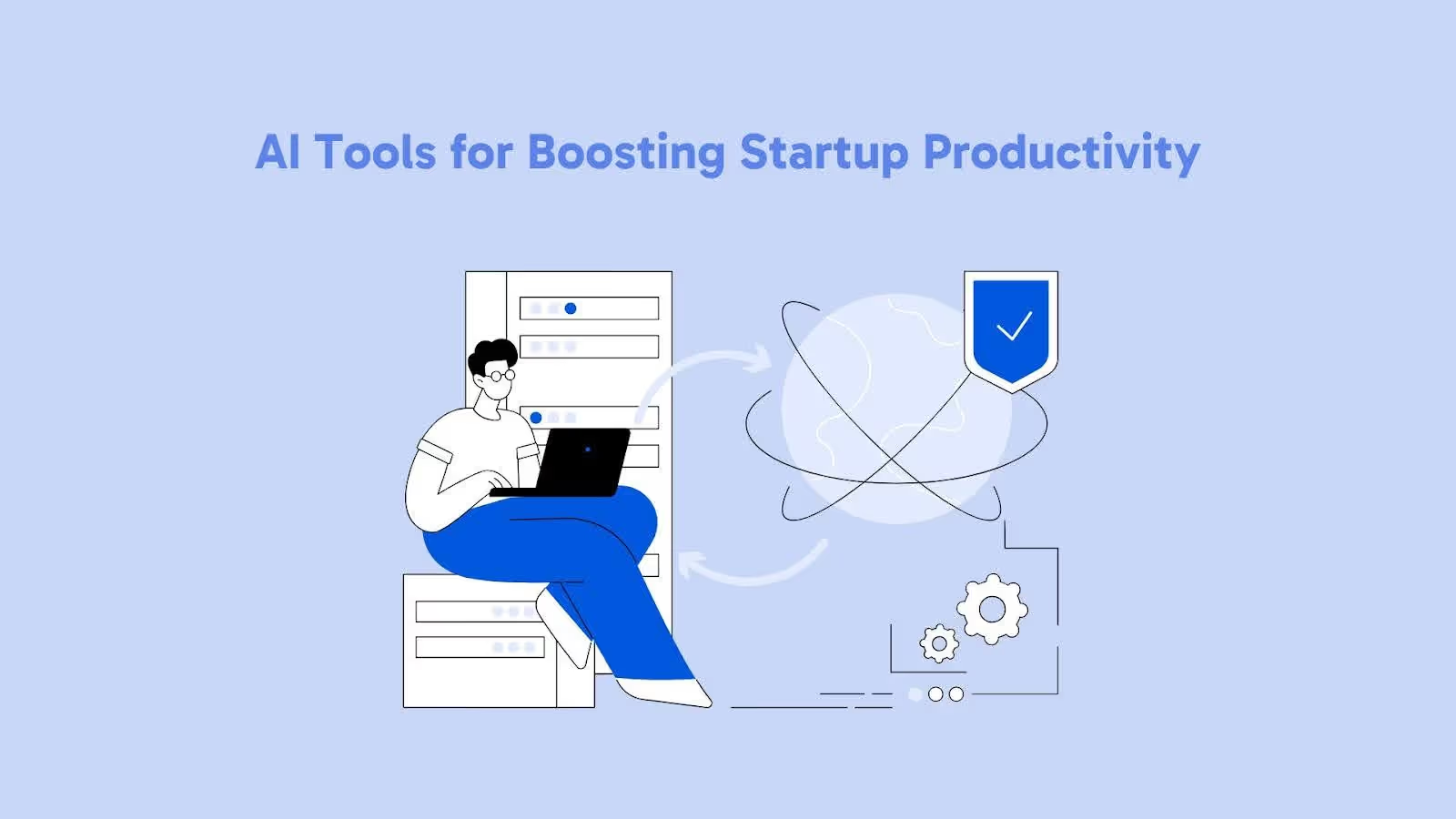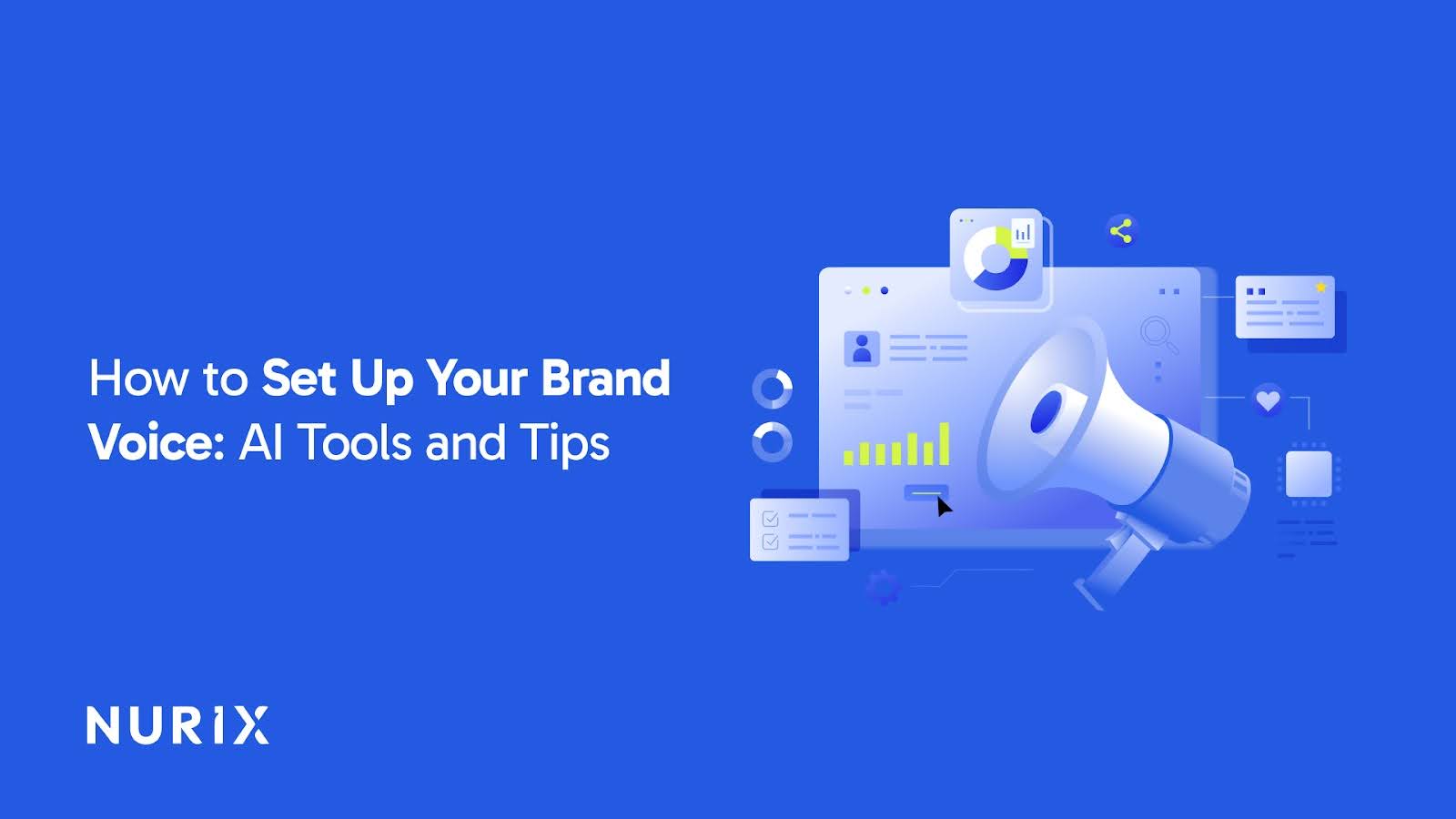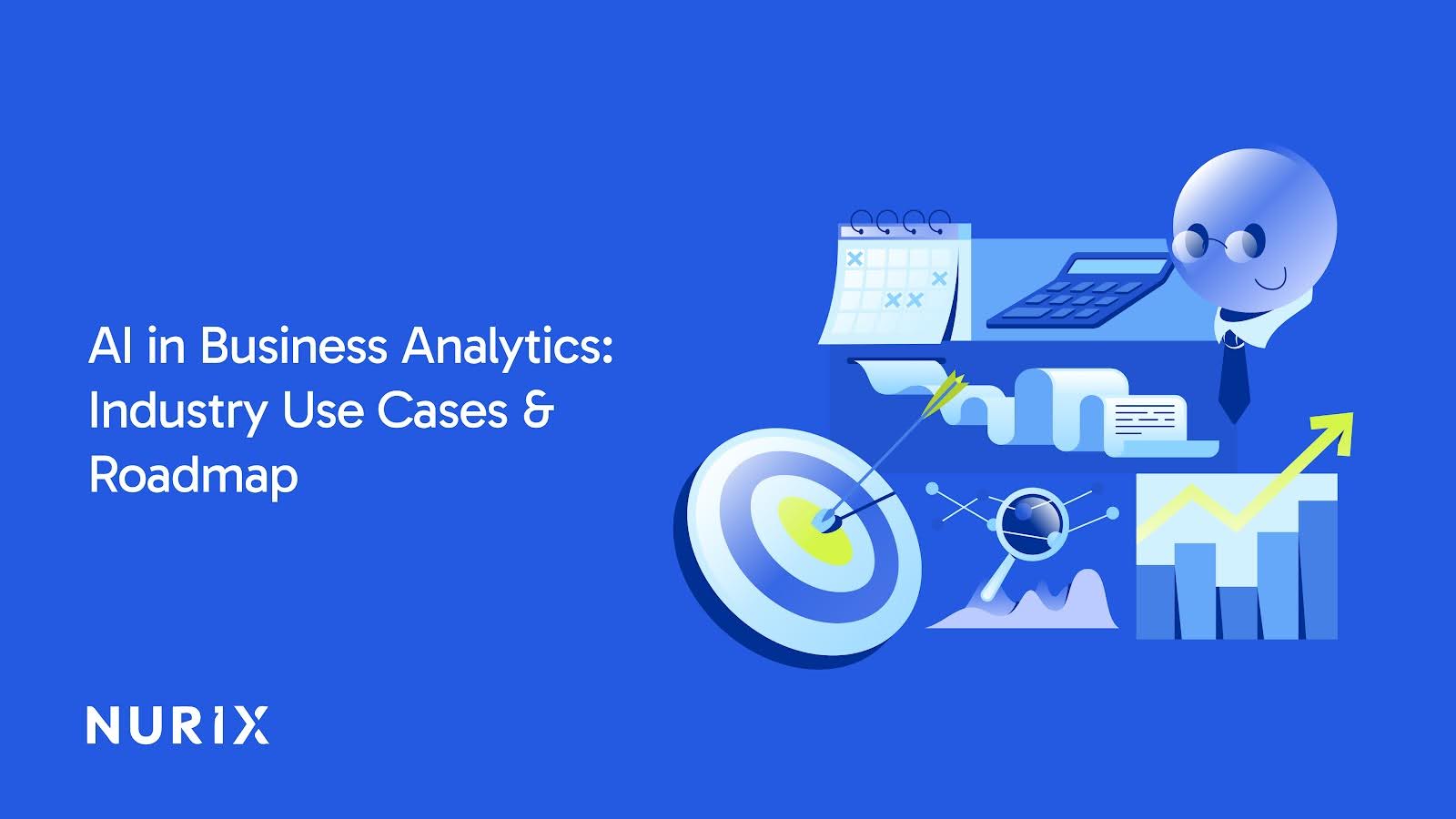Running a startup comes with its own set of challenges, particularly when it comes to sales. As a founder, you're often caught in a whirlwind of tasks, from lead generation to managing data, all while trying to keep up with a growing pipeline. Sales cycles feel longer, and the pressure to scale can become overwhelming, especially when resources are limited.
That’s where AI tools for sales startups come into play. These tools are revolutionizing the way businesses operate by automating routine tasks and optimizing sales strategies. In fact, a recent survey found that 98% of small businesses are now using AI-enabled tools, with nearly 40% utilizing generative AI, such as chatbots and image creation. This marks a significant shift from previous years, highlighting the growing reliance on AI for driving efficiency and accelerating growth.
With AI taking on time-consuming tasks, your sales team can focus on what truly matters, engaging with high-value leads and closing deals faster. Let’s take a look at the AI tools that can help improve your sales processes and open up new growth opportunities for your startup.
How AI Sales Tools Revolutionize Startups
AI tools for sales startups go beyond automating repetitive actions; they're fundamentally altering how startups build customer relationships and drive revenue. What's often missed is how AI helps startups create feedback loops, analyzing every customer interaction to constantly refine their approach, something traditionally out of reach for smaller teams. These AI-driven feedback loops ensure continuous improvement, leveling the playing field and allowing startups to compete effectively.
Here's a closer look at how these tools are revolutionizing startups:
- Behavioral Analysis: AI tracks which pages a lead visits, the content they download, the webinars they attend, and the emails they open. This data creates a profile of their interests, needs, and purchase intent. For example, suppose a lead repeatedly visits pricing pages or case studies related to a specific product feature. In that case, AI can flag them as a high-priority lead for that particular product.
- Predictive Modeling: AI uses machine learning to build predictive models that forecast the likelihood of a lead converting based on historical data. This model considers numerous factors, including lead source, industry, company size, and engagement activity, to generate a probability score.
- Dynamic Lead Routing: AI can automatically route high-priority leads to the most appropriate sales representative based on their expertise, experience, or territory. This ensures that each lead receives personalized attention from someone best equipped to close the deal.
- Intelligent Chatbots: Chatbots come in all shapes and sizes. While some are basic, others can be highly customizable. Advanced AI-driven chatbots can understand natural language, handle complex queries, and guide prospects through the sales funnel. With the right customization, they can schedule demos, provide pricing details, and collect contact information, all without needing human input.
- Lead Qualification: AI chatbots can qualify leads by asking targeted questions to determine their needs, budget, and timeline. This ensures that sales representatives only spend time on leads that meet specific criteria.
- Personalized Recommendations: AI can use customer data to provide customized product or service recommendations in real-time, increasing the likelihood of a sale.
- Automated Data Entry: AI can automatically extract data from emails, documents, and websites, eliminating the need for manual data entry. This saves sales representatives hours each week, allowing them to focus on selling.
- Automated Follow-Up: AI can automate follow-up emails and reminders, ensuring that leads don't fall through the cracks. These automated sequences can be personalized based on lead behavior and preferences.
- Meeting Scheduling: AI-powered scheduling tools can automatically find mutually convenient times for meetings and demos, eliminating the back-and-forth of traditional scheduling.
- Hyper-Personalized Emails: AI can generate personalized email campaigns based on customer data, including their interests, past purchases, and website activity. These emails can include customized product recommendations, relevant content, and customized offers.
- Dynamic Content: AI can dynamically adjust website content based on visitor data, displaying different content to different users based on their interests and behavior.
- Predictive Content: AI can predict what content a lead is most likely to be interested in and deliver it to them proactively, increasing engagement and driving them further down the sales funnel.
- Sentiment Analysis: AI analyzes the tone and sentiment of customer interactions to identify potential issues or opportunities. For example, if a customer expresses frustration, the AI can alert the sales representative to address the issue proactively.
- Keyword Detection: AI can detect keywords and phrases that indicate a customer's needs, interests, or objections. This helps sales representatives customize their pitch and address specific concerns.
- Competitive Intelligence: AI can track mentions of competitors during sales conversations, providing valuable insights into the competitive landscape.
AI tools for sales startups are clearly transforming how startups operate, but understanding which tools to choose is the next critical step. Different AI solutions address different pain points, so finding the right fit is essential to realizing the transformative potential we've discussed.
Top AI Sales Tools for Startups to Consider
Choosing effective AI tools for sales startups hinges on pinpointing solutions that address specific sales process bottlenecks and amplify core strengths. For example, is the bottleneck lead generation, personalized engagement, or efficient follow-up? What's often underestimated is AI's potential to deliver quantifiable, customized outreach, even for small sales teams. Addressing these key challenges empowers personalized engagement that truly transforms the sales process.
Here's a look at some AI tools for sales startups to consider:
1. Nurix AI
Nurix AI focuses on building end-to-end Agentic AI solutions. They offer full-stack development, including front-end UX, robust backends, and core AI agents. Nurix AI emphasizes co-development with startups, working in agile sprints to rapidly prototype and refine AI solutions. They aim to provide Silicon Valley-caliber expertise at a reduced cost.
How it helps startups:
- Cost-Effective AI Development: Offers AI development at roughly 50% of typical costs, which is appealing to startups with limited funding.
- Rapid Prototyping: Can move from idea to Minimum Viable Product (MVP) in about 8 weeks, allowing startups to quickly test and deploy AI solutions.
- Full-Stack Solutions: Delivers solutions with complete stacks, integrating the AI agents with front-end and back-end systems.
- Workflow Optimization: Continuously evaluates and optimizes workflows for top performance.
- Beyond Basic Automation: Nurix AI designs custom agents that can handle multi-step sales processes. This reduces the workload on your sales team, allowing them to focus on closing deals instead of repetitive tasks.
- Custom AI Models: Nurix AI customizes AI models based on a startup's unique data and needs. This approach contrasts with generic AI tools that may not accurately address specific requirements.
- Continuous Optimization: Nurix AI continuously evaluates and optimizes workflows. This proactive approach sets it apart from static AI implementations that gradually lose effectiveness over time.
If sales are eating up too much of your time and budget, Nurix AI can help. We automate tasks like lead qualification and follow-ups, cutting costs and increasing efficiency. This means your team can focus on closing deals, not administrative tasks. Let’s talk about how we can help you grow faster, for less. Find out more.
2. ChatGPT
ChatGPT can be a powerful asset for startups when configured to handle specific sales tasks. By managing lead qualification, answering queries, and automating follow-ups, it helps reduce the manual workload on sales teams. With its ability to understand context and respond naturally, ChatGPT ensures more meaningful interactions and can integrate smoothly with other tools to improve sales processes.
How it helps startups:
- Custom Knowledge Bases: Startups can upload internal documentation, product specs, and competitor analyses to ChatGPT, enabling the AI to provide more informed, company-specific responses.
- Sales Script Generation: ChatGPT can generate call scripts, email templates, and even chatbot dialogues based on detailed customer personas and use cases.
- Personalized Customer Service: By feeding ChatGPT customer data like purchase history and support tickets, startups can offer more personalized service experiences.
3. Drift
Drift is an AI-driven marketing platform that improves conversions through real-time, personalized conversations. By analyzing user behavior, Drift automates lead qualification and adapts responses to guide prospects further down the sales funnel. This is especially helpful for startups that need to engage leads quickly and efficiently, reducing the time spent on unqualified prospects.
How it helps startups:
- Real-Time Lead Qualification: Drift’s AI chatbots qualify leads by assessing their needs and interests, focusing sales efforts on promising prospects.
- Personalized Customer Journeys: Drift customizes interactions based on website behavior, increasing engagement and conversion rates.
- Meeting Scheduling Automation: Drift automates scheduling by integrating with calendars, saving time for sales teams.
4. Lavender
Lavender is an AI tool focused on optimizing cold emails. It offers instant feedback on email tone, structure, and length, ensuring that sales teams send more compelling messages. The platform uses communication psychology to suggest improvements, increasing the likelihood of responses and better engagement with potential customers.
How it helps startups:
- Email Scoring and Optimization: Lavender scores emails for response likelihood, offering suggestions to improve clarity, tone, and personalization.
- Data-Driven Personalization: Lavender uses recipient data to craft relevant email content.
- Template Analysis and Optimization: Lavender ranks email templates, helping identify and replicate effective strategies.
5. HubSpot
HubSpot’s AI tools integrate directly into its CRM, allowing startups to automate repetitive tasks and gain deeper insights into lead behavior. With features like lead scoring and automated outreach, HubSpot helps startups streamline their sales processes, making it easier to track and nurture prospects without adding complexity.
How it helps startups:
- Predictive Lead Scoring: HubSpot's AI analyzes lead behavior to identify the most engaged and interested prospects, allowing sales teams to prioritize their efforts effectively.
- Sales Forecasting: HubSpot provides accurate sales predictions, helping managers set realistic goals and align strategies to hit their targets.
- Chatbot Automation: HubSpot's chatbot builder allows startups to create automated chatbots to engage with website visitors, qualify leads, and provide customer support.
6. Copy.ai
Copy.ai helps startups generate high-quality content for emails, ads, and websites. Automating content creation saves time and ensures consistency across sales channels. This allows teams to focus on strategy and outreach while maintaining a clear and professional voice in all communications.
How it helps startups:
- AI-Powered Content Generation: Copy.ai generates engaging and persuasive content for various marketing channels, saving time and resources.
- Workflow Automation: Copy.ai automates repetitive tasks, such as creating personalized emails for thousands of potential customers.
- Lead Enrichment: Copy.ai connects with CRM systems to enrich customer profiles automatically.
7. InsightSquared
InsightSquared focuses on revenue intelligence, helping startups analyze their sales data more effectively. By integrating with CRMs and marketing tools, it provides a clearer view of pipeline health, forecasting accuracy, and sales performance, allowing teams to make smarter, data-driven decisions.
How it helps startups:
- Accurate Sales Forecasting: InsightSquared provides AI-powered analytics to offer accurate sales forecasting.
- Pipeline Management: InsightSquared offers interactive pipeline management features with deal scoring and risk assessment.
- Data-Driven Decisions: InsightSquared helps sales leaders, operations managers, and reps make informed decisions based on a unified view of sales performance.
8. Salesforce Einstein
Salesforce Einstein integrates AI within the Salesforce CRM to automate tasks and provide predictive analytics. It helps startups prioritize leads, automate follow-ups, and gain insights into sales performance, allowing teams to make better decisions and focus on the most promising opportunities.
How it helps startups:
- Sales Opportunity Anticipation: Einstein helps organizations anticipate new sales opportunities.
- Automated Email Personalization: Einstein autogenerates personalized emails for every sales conversation.
- Intelligent Sales Assistance: Einstein provides a sales assistant that can handle many tasks, freeing up salespeople to focus on more important activities.
9. LinkedIn Sales Navigator
LinkedIn Sales Navigator uses AI to help identify and connect with potential leads on LinkedIn. It provides advanced search filters and lead recommendations to find ideal prospects.
How it helps startups:
- Precision Lead Identification: Sales Navigator identifies potential leads with surgical precision using advanced search filters.
- AI-Driven Lead Recommendations: Sales Navigator serves up potential contacts based on preferences and past interactions.
- Real-Time Insights: Sales Navigator keeps users informed of job changes, company news, and shared connections, providing valuable context for outreach efforts.
Price Comparison Table for the AI Tools
Now that we've explored some of the AI tools for sales startups that are out there, it's important to consider why implementing these technologies early on can be so impactful. The benefits extend beyond simply automating tasks; it's about fundamentally changing how a startup approaches sales and growth.
Why Startups Should Adopt AI Sales Tools Early On
For startups, the discussion around adopting AI tools for sales startups often focuses on efficiency gains. But the real advantage lies in the opportunity to bake data-driven decision-making into the sales team's DNA from day one.
What's often missed is that implementing AI early helps startups create a culture of continuous improvement, where every interaction refines the sales process. This agile, data-informed approach is difficult to retrofit later, giving early adopters a significant competitive advantage.
Here's why startups should embrace AI tools for sales startups early on:
- Leveling the Playing Field
AI tools empower startups to compete with larger companies that possess greater financial and human capital. By automating repetitive tasks, AI frees up valuable time for sales teams to focus on high-value activities such as building relationships and closing deals. This increased productivity allows startups to achieve more with fewer resources.
- Rapid Scaling and Growth
AI offers startups the scalability needed to manage growth effectively. As a startup expands, the volume of leads, customers, and sales data grows exponentially. AI tools for sales startups can process and analyze this data without requiring additional infrastructure or manpower. This scalability ensures that sales processes remain efficient and effective, even during periods of rapid growth.
- Data-Driven Decision-Making
Startups need to make informed decisions quickly. AI provides valuable insights based on data, enabling startups to identify new leads, personalize customer experiences, and optimize sales processes. By analyzing customer data, sales AI tools can reveal patterns and trends that would otherwise go unnoticed, allowing startups to adjust their strategies and offerings to better meet customer needs.
- Improved Customer Engagement
Personalized customer experiences are crucial for startups looking to build brand loyalty and attract repeat business. AI tools can analyze customer data to craft customized content and recommendations, appealing to each customer's unique pain points and increasing the likelihood of a sale. This level of personalization improves customer engagement and satisfaction, setting startups apart from competitors.
- Improved Lead Generation and Qualification
Efficient lead generation and qualification are vital for startups seeking to maximize their sales efforts. AI analyzes large data sets to uncover the leads most likely to convert, keeping the focus on the highest-value prospects and increasing conversions. This targeted approach ensures that sales teams spend their time and effort on leads with the greatest potential, improving overall sales efficiency.
- Reduced Sales Cycle
Startups need to close deals quickly to generate revenue and sustain growth. AI helps identify the right prospects, automate follow-up messaging, and determine the best times and ways to engage, accelerating the sales cycle and enabling startups to close more deals faster. This accelerated sales cycle translates to quicker revenue generation and improved cash flow.
Hopefully, the benefits of adopting AI tools for sales startups early on are clear.
But with so many options available, how do you ensure you're making the right choice for your specific startup needs and goals? It's not just about features; it's about finding an AI solution that aligns with your team's skills and target market.
How to Choose the Right AI Sales Tool for Your Startup
Selecting AI tools for sales startups requires moving beyond a simple checklist of features. The goal is to identify solutions that fundamentally transform your sales team's behavior and foster a more responsive, adaptive sales structure.
Here's how to choose the right AI tools for sales startup:
- Define Clear Objectives and Pain Points: Identify specific challenges such as lead generation, customer engagement, or sales forecasting. Clear objectives will help you find tools that directly address your needs.
- Evaluate Integration Capabilities: Ensure the AI tool integrates smoothly with your CRM, marketing software, and other tech stack components. Look for tools with easy compatibility through connectors, APIs, and plugins.
- Assess Scalability: Choose AI tools that can grow with your startup, handling increasing data and customer interactions without needing infrastructure upgrades.
- Test and Validate: Run small-scale trials to assess effectiveness and user-friendliness. Gather feedback to ensure the tool meets expectations and integrates smoothly into workflows.
- Consider the Vendor's Reputation: Research the vendor’s track record, support, and customer satisfaction. Select a provider committed to your startup’s success and ongoing assistance.
Conclusion
As AI continues to reshape the way startups approach sales, it's clear that the integration of AI tools for sales startups is no longer optional; it's a strategic necessity. By automating routine tasks, improving lead qualification, and providing deep data insights, these tools empower startups to scale quickly and efficiently without the need for an expanded workforce.
The competitive edge AI offers is undeniable. Startups that adopt AI tools early on can use improved decision-making capabilities, optimize their sales processes, and ultimately drive higher revenue. As the market becomes increasingly tech-driven, embracing AI isn't just about keeping up; it's about staying ahead.
Incorporating AI tools for sales startups is not just about automating tasks but about creating a smarter, more agile sales strategy. The question isn't whether to adopt these tools but how quickly you can use their power to fuel your growth.
At Nurix AI, we specialize in creating powerful AI-driven solutions customized specifically for startups. Our expert team works closely with you to bring your vision to life with cutting-edge technology and rapid prototyping. Whether you’re looking to improve customer interactions, streamline processes, or drive smarter business decisions, we’re here to help you scale effectively. Sign up today!
Why Choose Nurix AI?
- Startups Focused: We understand the unique challenges of startups and create affordable, scalable AI solutions that grow with you.
- Speed to Market: Accelerate your development cycle with rapid prototyping, testing, and deployment, all designed to get your product to market faster.
- No Long-Term Commitment: Work with us on specific projects or ongoing collaborations based on your needs and budget.
- Flexible Engagement: Whether you need a one-time AI solution or ongoing development, we adjust to meet your startup’s evolving needs.
- Data-Driven Strategy: We use data insights to ensure your AI solutions are aligned with your business goals, delivering measurable results.
Trusted by 10+ Startups! Nurix AI has already helped numerous startups scale. Get in touch with us today and start your journey toward smarter, scalable growth.
FAQs About AI Tools for Sales Startups
1. How can AI tools for sales startups help with lead generation?
AI tools for sales startups automate the lead qualification process by analyzing data and identifying the most promising prospects, enabling your team to focus on high-value opportunities.
2. Are AI tools for sales startups expensive to implement?
Many AI tools for sales startups offer scalable pricing models that fit the budget of smaller companies, with options ranging from basic plans to enterprise-level solutions.
3. Can AI tools for sales startups integrate with existing CRMs?
Yes, most AI tools for sales startups are designed to integrate smoothly with popular CRMs, improving functionality without requiring a complete system overhaul.
4. What role do AI tools for sales startups play in sales forecasting?
AI tools for sales startups analyze historical data to predict future sales trends, offering insights that help businesses make more informed decisions and adjust strategies accordingly.
5. How do AI tools for sales startups improve customer engagement?
AI tools for sales startups, like chatbots and automated email campaigns, allow for personalized, real-time interactions with customers, improving engagement and conversion rates.










